Abstract:
Nowadays, one of the challenges in transport electrification is the reduction of the components’ size and weight in order to improve the power density. This is often achi...Show MoreMetadata
Abstract:
Nowadays, one of the challenges in transport electrification is the reduction of the components’ size and weight in order to improve the power density. This is often achieved by designing electrical machines with higher rotational speeds and excitation frequencies. In addition, the converter needs to control the machine over a wide speed range given by the mission profile. Therefore, copper losses can significantly increase due to the combination of high frequency excitation and the harmonics introduced by the converter. The winding arrangement design plays a key role in the minimization of the copper losses, thus towards a higher efficiency and/or an improved power density. Different winding topologies can be adopted for high speed electrical machines and amongst them random windings are still one of the most widespread types. This paper presents an in depth study on AC losses in random windings for high frequency motor applications. An analytical method is compared against 2-D Finite Element (FE) simulation results. These are then compared to experimental measurements taken on a custom motorette. Importantly, in order to take into account the random positions of each strand within the machine slots, an Experimental Statistic Method (ESM) is proposed. The ESM allows to define the probability distribution which is useful to evaluate the winding copper losses at the design stage. The contribution of the Pulse Width Modulation (PWM) effect is also considered and experimentally evaluated.
Published in: IEEE Transactions on Energy Conversion ( Volume: 36, Issue: 3, September 2021)
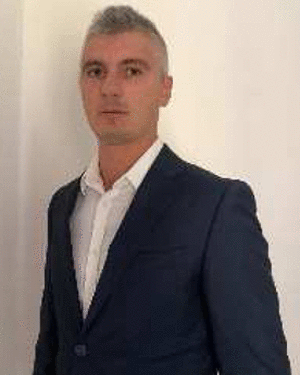
Power Electronics, Machines and Control Group, University of Nottingham, Ningbo, China
Eraldo Preci (Member, IEEE) received the B.Sc. and M.Sc. (Hons.) degrees in electrical engineering from the University of Pisa, Pisa, Italy, in 2010 and 2013, respectively.
From 2014 to 2017, he has worked for Intertek Italia as a Consultant for General Electric Turbomachinery, Italy.
Since 2018 he is pursuing an exchange Ph.D. degree with the Power Electronics, Machines and Control (PEMC) Group, University of Nottingham, b...Show More
Eraldo Preci (Member, IEEE) received the B.Sc. and M.Sc. (Hons.) degrees in electrical engineering from the University of Pisa, Pisa, Italy, in 2010 and 2013, respectively.
From 2014 to 2017, he has worked for Intertek Italia as a Consultant for General Electric Turbomachinery, Italy.
Since 2018 he is pursuing an exchange Ph.D. degree with the Power Electronics, Machines and Control (PEMC) Group, University of Nottingham, b...View more
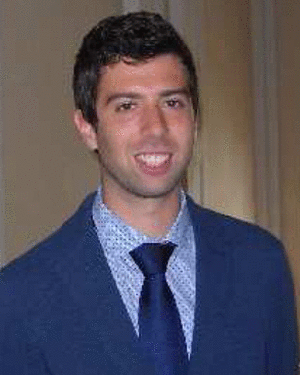
Innovation and Research Department, Romax Technology, part of Hexagon's Manufacturing Intelligence Division, Nottingham, U.K.
Giorgio Valente received the master's degree (Hons.) in electrical engineering from the University of Padova, Italy, in 2014, and the Ph.D. degree in electrical machines design and control from the University of Nottingham, U.K., in 2018. He then worked for two years as a Research Fellow with the Power Electronics, Machines and Control Group, University of Nottingham, U.K. He is currently working as a Electric Machine Des...Show More
Giorgio Valente received the master's degree (Hons.) in electrical engineering from the University of Padova, Italy, in 2014, and the Ph.D. degree in electrical machines design and control from the University of Nottingham, U.K., in 2018. He then worked for two years as a Research Fellow with the Power Electronics, Machines and Control Group, University of Nottingham, U.K. He is currently working as a Electric Machine Des...View more
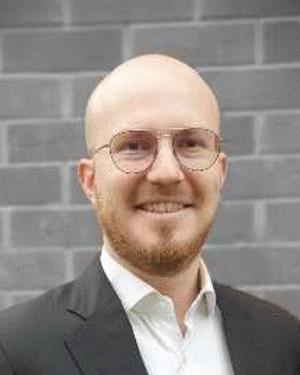
PEMC Group, University of Nottingham, Nottingham, U.K.
Alessandro Galassini (Member, IEEE) received the master's degree in mechatronic engineering from the University of Modena and Reggio Emilia, Reggio Emilia, Italy, in 2012, and the Ph.D. degree in power sharing for multi-three-phase electrical machines from the University of Nottingham, Nottingham, U.K., in 2017. He is currently a Research Fellow with the Power Electronics, Machines and Control Group, The University of Not...Show More
Alessandro Galassini (Member, IEEE) received the master's degree in mechatronic engineering from the University of Modena and Reggio Emilia, Reggio Emilia, Italy, in 2012, and the Ph.D. degree in power sharing for multi-three-phase electrical machines from the University of Nottingham, Nottingham, U.K., in 2017. He is currently a Research Fellow with the Power Electronics, Machines and Control Group, The University of Not...View more

School of Mechanical Engineering and Collaborative Innovation Center of Electric Vehicles in Beijing, Beijing Institute of Technology, Beijing, China
Xin Yuan (Student Member, IEEE) was born in Heilongjiang, China, in 1990. He received the B.Eng., M.Sc. and Ph.D. degrees in electrical engineering, in 2013, 2016, and 2020, respectively. He is currently a Research Fellow with the centre for system intelligence and efficiency (EXQUISITUS), Nanyang Technological University. He was a Research Associate with PEMC group, University of Nottingham since January 2019. His resear...Show More
Xin Yuan (Student Member, IEEE) was born in Heilongjiang, China, in 1990. He received the B.Eng., M.Sc. and Ph.D. degrees in electrical engineering, in 2013, 2016, and 2020, respectively. He is currently a Research Fellow with the centre for system intelligence and efficiency (EXQUISITUS), Nanyang Technological University. He was a Research Associate with PEMC group, University of Nottingham since January 2019. His resear...View more
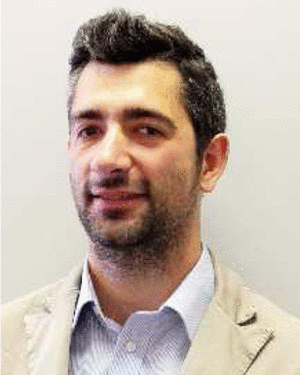
Power Electronics, Machines and Control Group, University of Nottingham, Ningbo, China
Michele Degano (Member, IEEE) received the master's degree in electrical engineering from the University of Trieste, Italy, in 2011, and the Ph.D. degree in industrial engineering from the University of Padova, Italy, in 2015. Between 2014 and 2016, he was a Postdoctoral Researcher with The University of Nottingham, UK, where he joined the Power Electronics, Machines and Control (PEMC) Research Group. In 2016, he was appo...Show More
Michele Degano (Member, IEEE) received the master's degree in electrical engineering from the University of Trieste, Italy, in 2011, and the Ph.D. degree in industrial engineering from the University of Padova, Italy, in 2015. Between 2014 and 2016, he was a Postdoctoral Researcher with The University of Nottingham, UK, where he joined the Power Electronics, Machines and Control (PEMC) Research Group. In 2016, he was appo...View more
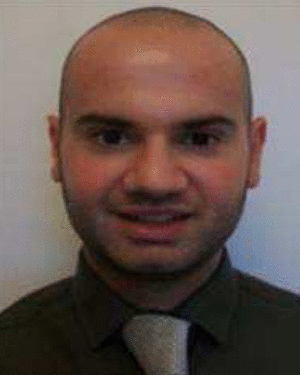
Power Electronics, Machines and Control Group, University of Nottingham, Ningbo, China
David Gerada (Member, IEEE) received the Ph.D. degree in high-speed electrical machines from the University of Nottingham, Nottingham, U.K., in 2012. From 2007 to 2016, he was with the R&D Department at Cummins, Stamford, U.K., first as an Electromagnetic Design Engineer (2007–2012), and then as a Senior Electromagnetic Design Engineer and Innovation Leader (2012–2016). At Cummins, he pioneered the design and development ...Show More
David Gerada (Member, IEEE) received the Ph.D. degree in high-speed electrical machines from the University of Nottingham, Nottingham, U.K., in 2012. From 2007 to 2016, he was with the R&D Department at Cummins, Stamford, U.K., first as an Electromagnetic Design Engineer (2007–2012), and then as a Senior Electromagnetic Design Engineer and Innovation Leader (2012–2016). At Cummins, he pioneered the design and development ...View more
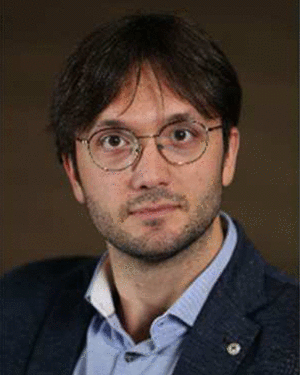
Power Electronics, Machines and Control Group, University of Nottingham, Ningbo, China
Giampaolo Buticchi (Senior Member, IEEE) received the master's degree in electronic engineering and the Ph.D degree in information technologies from the University of Parma, Italy, in 2009 and 2013, respectively. In 2012, he was Visiting Researcher with The University of Nottingham, U.K. Between 2014 and 2017, he was a Postdoctoral Researcher, and Guest Professor with the University of Kiel, Germany. During his stay in Ge...Show More
Giampaolo Buticchi (Senior Member, IEEE) received the master's degree in electronic engineering and the Ph.D degree in information technologies from the University of Parma, Italy, in 2009 and 2013, respectively. In 2012, he was Visiting Researcher with The University of Nottingham, U.K. Between 2014 and 2017, he was a Postdoctoral Researcher, and Guest Professor with the University of Kiel, Germany. During his stay in Ge...View more
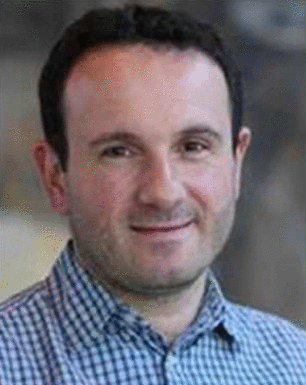
Power Electronics, Machines and Control Group, University of Nottingham, Ningbo, China
Christopher Gerada (Senior Member, IEEE) received the Ph.D. degree in numerical modeling of electrical machines from The University of Nottingham, Nottingham, U.K., in 2005. He is an Associate Pro-Vice-Chancellor for industrial strategy and impact and Professor of electrical machines. He has secured over £20M of funding through major industrial, European and U.K. grants and authored more than 350 referred publications. He...Show More
Christopher Gerada (Senior Member, IEEE) received the Ph.D. degree in numerical modeling of electrical machines from The University of Nottingham, Nottingham, U.K., in 2005. He is an Associate Pro-Vice-Chancellor for industrial strategy and impact and Professor of electrical machines. He has secured over £20M of funding through major industrial, European and U.K. grants and authored more than 350 referred publications. He...View more

Power Electronics, Machines and Control Group, University of Nottingham, Ningbo, China
Eraldo Preci (Member, IEEE) received the B.Sc. and M.Sc. (Hons.) degrees in electrical engineering from the University of Pisa, Pisa, Italy, in 2010 and 2013, respectively.
From 2014 to 2017, he has worked for Intertek Italia as a Consultant for General Electric Turbomachinery, Italy.
Since 2018 he is pursuing an exchange Ph.D. degree with the Power Electronics, Machines and Control (PEMC) Group, University of Nottingham, between the two campuses based in Nottingham, U.K and Ningbo, China. His main research interests are in the modelling, analysis and multiphysics optimization of electrical machines and drive. Mr. Preci received the qualification of Italian Chartered Engineer in 2015.
Eraldo Preci (Member, IEEE) received the B.Sc. and M.Sc. (Hons.) degrees in electrical engineering from the University of Pisa, Pisa, Italy, in 2010 and 2013, respectively.
From 2014 to 2017, he has worked for Intertek Italia as a Consultant for General Electric Turbomachinery, Italy.
Since 2018 he is pursuing an exchange Ph.D. degree with the Power Electronics, Machines and Control (PEMC) Group, University of Nottingham, between the two campuses based in Nottingham, U.K and Ningbo, China. His main research interests are in the modelling, analysis and multiphysics optimization of electrical machines and drive. Mr. Preci received the qualification of Italian Chartered Engineer in 2015.View more

Innovation and Research Department, Romax Technology, part of Hexagon's Manufacturing Intelligence Division, Nottingham, U.K.
Giorgio Valente received the master's degree (Hons.) in electrical engineering from the University of Padova, Italy, in 2014, and the Ph.D. degree in electrical machines design and control from the University of Nottingham, U.K., in 2018. He then worked for two years as a Research Fellow with the Power Electronics, Machines and Control Group, University of Nottingham, U.K. He is currently working as a Electric Machine Design and Development Engineer with Romax Technology Ltd., Nottingham, U.K. His research interests include bearingless machines design and control, high speed machines, traction machines, and multiphysics-based optimization of electrical machines.
Giorgio Valente received the master's degree (Hons.) in electrical engineering from the University of Padova, Italy, in 2014, and the Ph.D. degree in electrical machines design and control from the University of Nottingham, U.K., in 2018. He then worked for two years as a Research Fellow with the Power Electronics, Machines and Control Group, University of Nottingham, U.K. He is currently working as a Electric Machine Design and Development Engineer with Romax Technology Ltd., Nottingham, U.K. His research interests include bearingless machines design and control, high speed machines, traction machines, and multiphysics-based optimization of electrical machines.View more

PEMC Group, University of Nottingham, Nottingham, U.K.
Alessandro Galassini (Member, IEEE) received the master's degree in mechatronic engineering from the University of Modena and Reggio Emilia, Reggio Emilia, Italy, in 2012, and the Ph.D. degree in power sharing for multi-three-phase electrical machines from the University of Nottingham, Nottingham, U.K., in 2017. He is currently a Research Fellow with the Power Electronics, Machines and Control Group, The University of Nottingham. His research interests include control of electrical drives for future transportation systems.
Alessandro Galassini (Member, IEEE) received the master's degree in mechatronic engineering from the University of Modena and Reggio Emilia, Reggio Emilia, Italy, in 2012, and the Ph.D. degree in power sharing for multi-three-phase electrical machines from the University of Nottingham, Nottingham, U.K., in 2017. He is currently a Research Fellow with the Power Electronics, Machines and Control Group, The University of Nottingham. His research interests include control of electrical drives for future transportation systems.View more

School of Mechanical Engineering and Collaborative Innovation Center of Electric Vehicles in Beijing, Beijing Institute of Technology, Beijing, China
Xin Yuan (Student Member, IEEE) was born in Heilongjiang, China, in 1990. He received the B.Eng., M.Sc. and Ph.D. degrees in electrical engineering, in 2013, 2016, and 2020, respectively. He is currently a Research Fellow with the centre for system intelligence and efficiency (EXQUISITUS), Nanyang Technological University. He was a Research Associate with PEMC group, University of Nottingham since January 2019. His research interests include synchronous motor drives, power converters, multi-phase motor drives and fault-tolerant strategy of motor.
Xin Yuan (Student Member, IEEE) was born in Heilongjiang, China, in 1990. He received the B.Eng., M.Sc. and Ph.D. degrees in electrical engineering, in 2013, 2016, and 2020, respectively. He is currently a Research Fellow with the centre for system intelligence and efficiency (EXQUISITUS), Nanyang Technological University. He was a Research Associate with PEMC group, University of Nottingham since January 2019. His research interests include synchronous motor drives, power converters, multi-phase motor drives and fault-tolerant strategy of motor.View more

Power Electronics, Machines and Control Group, University of Nottingham, Ningbo, China
Michele Degano (Member, IEEE) received the master's degree in electrical engineering from the University of Trieste, Italy, in 2011, and the Ph.D. degree in industrial engineering from the University of Padova, Italy, in 2015. Between 2014 and 2016, he was a Postdoctoral Researcher with The University of Nottingham, UK, where he joined the Power Electronics, Machines and Control (PEMC) Research Group. In 2016, he was appointed Assistant Professor in advanced electrical machines, at The University of Nottingham, U.K. He was promoted to Associate Professor in 2020. His main research focuses on electrical machines and drives for industrial, automotive, railway and aerospace applications, ranging from small to large power. He is currently the PEMC Director of Industrial Liaison leading research projects for the development of hybrid electric aerospace platforms and electric transports.
Michele Degano (Member, IEEE) received the master's degree in electrical engineering from the University of Trieste, Italy, in 2011, and the Ph.D. degree in industrial engineering from the University of Padova, Italy, in 2015. Between 2014 and 2016, he was a Postdoctoral Researcher with The University of Nottingham, UK, where he joined the Power Electronics, Machines and Control (PEMC) Research Group. In 2016, he was appointed Assistant Professor in advanced electrical machines, at The University of Nottingham, U.K. He was promoted to Associate Professor in 2020. His main research focuses on electrical machines and drives for industrial, automotive, railway and aerospace applications, ranging from small to large power. He is currently the PEMC Director of Industrial Liaison leading research projects for the development of hybrid electric aerospace platforms and electric transports.View more

Power Electronics, Machines and Control Group, University of Nottingham, Ningbo, China
David Gerada (Member, IEEE) received the Ph.D. degree in high-speed electrical machines from the University of Nottingham, Nottingham, U.K., in 2012. From 2007 to 2016, he was with the R&D Department at Cummins, Stamford, U.K., first as an Electromagnetic Design Engineer (2007–2012), and then as a Senior Electromagnetic Design Engineer and Innovation Leader (2012–2016). At Cummins, he pioneered the design and development of high-speed electrical machines, transforming a challenging technology into a reliable one suitable for the transportation market, while establishing industry-wide-used metrics for such machinery. In 2016, he joined the University of Nottingham where he is currently a Principal Research Fellow, responsible for developing state-of-the-art electrical machines for future transportation which push existing technology boundaries, while propelling the new technologies to higher technology readiness levels. Dr. Gerada is a Chartered Engineer in the U.K. and a member of the Institution of Engineering and Technology.
David Gerada (Member, IEEE) received the Ph.D. degree in high-speed electrical machines from the University of Nottingham, Nottingham, U.K., in 2012. From 2007 to 2016, he was with the R&D Department at Cummins, Stamford, U.K., first as an Electromagnetic Design Engineer (2007–2012), and then as a Senior Electromagnetic Design Engineer and Innovation Leader (2012–2016). At Cummins, he pioneered the design and development of high-speed electrical machines, transforming a challenging technology into a reliable one suitable for the transportation market, while establishing industry-wide-used metrics for such machinery. In 2016, he joined the University of Nottingham where he is currently a Principal Research Fellow, responsible for developing state-of-the-art electrical machines for future transportation which push existing technology boundaries, while propelling the new technologies to higher technology readiness levels. Dr. Gerada is a Chartered Engineer in the U.K. and a member of the Institution of Engineering and Technology.View more

Power Electronics, Machines and Control Group, University of Nottingham, Ningbo, China
Giampaolo Buticchi (Senior Member, IEEE) received the master's degree in electronic engineering and the Ph.D degree in information technologies from the University of Parma, Italy, in 2009 and 2013, respectively. In 2012, he was Visiting Researcher with The University of Nottingham, U.K. Between 2014 and 2017, he was a Postdoctoral Researcher, and Guest Professor with the University of Kiel, Germany. During his stay in Germany, he was awarded with the Von Humboldt Postdoctoral Fellowship to carry out research related to fault tolerant topologies of smart transformers.
In 2017, he was appointed as Associate Professor in electrical engineering with The University of Nottingham, Ningbo, China and as Head of Power Electronics of the Nottingham Electrification Center. He was promoted to Professor in 2020.
His research interests include power electronics for renewable energy systems, smart transformer fed micro-grids and dc grids for the More Electric Aircraft. Dr. Buticchi is one of the advocates for DC distribution systems and multi-port power electronics onboard the future aircraft.
He has authored or coauthored more than 210 scientific papers, an Associate Editor of the IEEE Transactions on Industrial Electronics, the IEEE Transactions on Transportation Electrification and the IEEE Open Journal of the Industrial Electronics Society. He is currently the Chair of the IEEE-IES Technical Committee on Renewable Energy Systems and the IES Energy Cluster Delegate.
Giampaolo Buticchi (Senior Member, IEEE) received the master's degree in electronic engineering and the Ph.D degree in information technologies from the University of Parma, Italy, in 2009 and 2013, respectively. In 2012, he was Visiting Researcher with The University of Nottingham, U.K. Between 2014 and 2017, he was a Postdoctoral Researcher, and Guest Professor with the University of Kiel, Germany. During his stay in Germany, he was awarded with the Von Humboldt Postdoctoral Fellowship to carry out research related to fault tolerant topologies of smart transformers.
In 2017, he was appointed as Associate Professor in electrical engineering with The University of Nottingham, Ningbo, China and as Head of Power Electronics of the Nottingham Electrification Center. He was promoted to Professor in 2020.
His research interests include power electronics for renewable energy systems, smart transformer fed micro-grids and dc grids for the More Electric Aircraft. Dr. Buticchi is one of the advocates for DC distribution systems and multi-port power electronics onboard the future aircraft.
He has authored or coauthored more than 210 scientific papers, an Associate Editor of the IEEE Transactions on Industrial Electronics, the IEEE Transactions on Transportation Electrification and the IEEE Open Journal of the Industrial Electronics Society. He is currently the Chair of the IEEE-IES Technical Committee on Renewable Energy Systems and the IES Energy Cluster Delegate.View more

Power Electronics, Machines and Control Group, University of Nottingham, Ningbo, China
Christopher Gerada (Senior Member, IEEE) received the Ph.D. degree in numerical modeling of electrical machines from The University of Nottingham, Nottingham, U.K., in 2005. He is an Associate Pro-Vice-Chancellor for industrial strategy and impact and Professor of electrical machines. He has secured over £20M of funding through major industrial, European and U.K. grants and authored more than 350 referred publications. He subsequently worked as a Researcher with The University of Nottingham on high-performance electrical drives and on the design and modeling of electromagnetic actuators for aerospace applications. In 2008, he was appointed as a Lecturer in electrical machines, in 2011, as an Associate Professor and in 2013, as a Professor with The University of Nottingham. His research interest include electromagnetic energy conversion in electrical machines and drives, focusing mainly on transport electrification. He was awarded a Research Chair from the Royal Academy of Engineering in 2013. Prof. Gerada was an Associate Editor for the IEEE Transactions on Industry Applications and is the past Chair of the IEEE IES Electrical Machines Committee.
Christopher Gerada (Senior Member, IEEE) received the Ph.D. degree in numerical modeling of electrical machines from The University of Nottingham, Nottingham, U.K., in 2005. He is an Associate Pro-Vice-Chancellor for industrial strategy and impact and Professor of electrical machines. He has secured over £20M of funding through major industrial, European and U.K. grants and authored more than 350 referred publications. He subsequently worked as a Researcher with The University of Nottingham on high-performance electrical drives and on the design and modeling of electromagnetic actuators for aerospace applications. In 2008, he was appointed as a Lecturer in electrical machines, in 2011, as an Associate Professor and in 2013, as a Professor with The University of Nottingham. His research interest include electromagnetic energy conversion in electrical machines and drives, focusing mainly on transport electrification. He was awarded a Research Chair from the Royal Academy of Engineering in 2013. Prof. Gerada was an Associate Editor for the IEEE Transactions on Industry Applications and is the past Chair of the IEEE IES Electrical Machines Committee.View more


